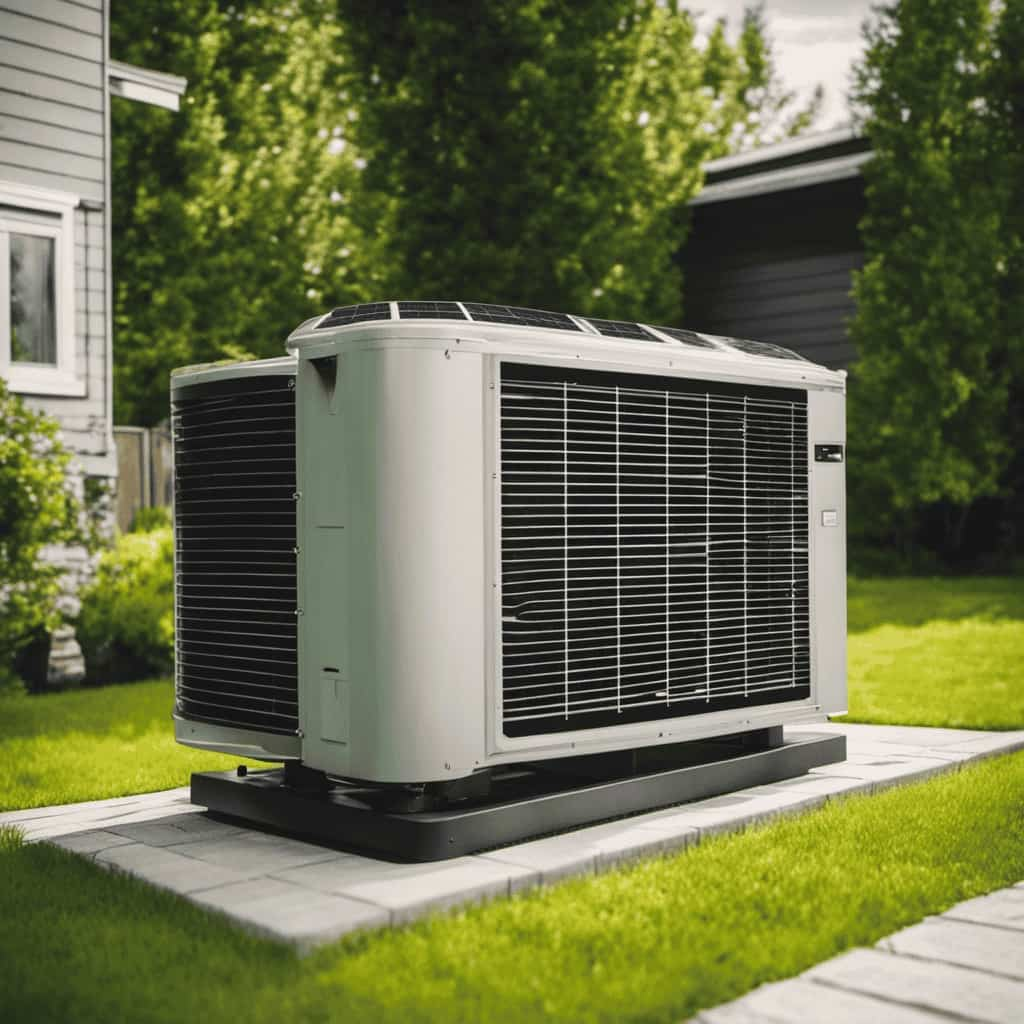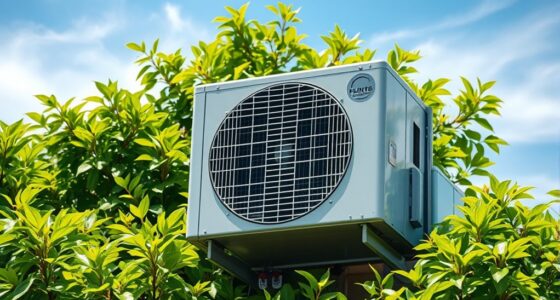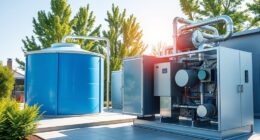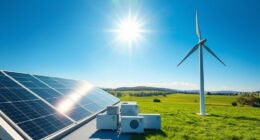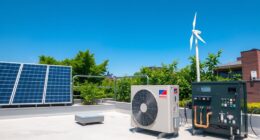We have uncovered a groundbreaking statistic: air conditioning heat pumps can reduce your energy costs by as much as 50% when compared to conventional heating and cooling systems.
In this article, we’ll share an unconventional guide on how to maximize the efficiency of your air conditioning heat pump. From understanding SEER ratings to exploring different heat pump technologies, we’ll equip you with the knowledge and strategies to optimize energy savings and improve performance.
Let’s dive in and make your home more efficient!
Key Takeaways
- SEER rating is an important factor when choosing an air conditioning heat pump, as higher ratings indicate more energy-efficient systems.
- Proper sizing and installation techniques are crucial for maximizing efficiency and minimizing energy consumption.
- Regular maintenance, including cleaning or replacing filters and checking refrigerant levels, is essential for ensuring the heat pump operates at its highest efficiency.
- Utilizing energy-saving techniques, such as adjusting temperature settings and utilizing programmable schedules, can help optimize energy savings and reduce utility costs.
The Basics of Air Conditioning Heat Pumps Efficiency
Let’s start by understanding the basics of how air conditioning heat pumps achieve efficiency.
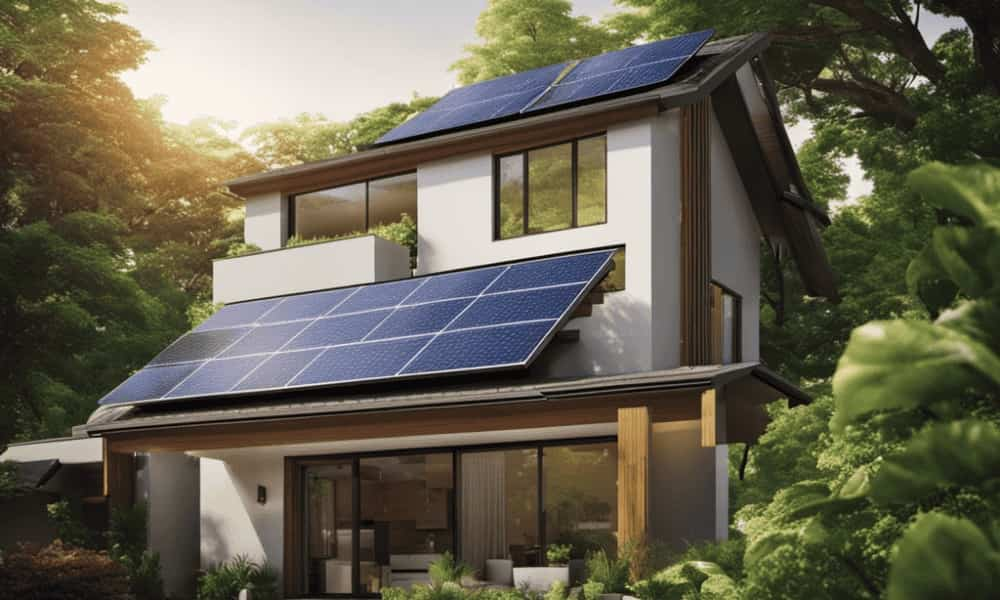
Air conditioning heat pumps are designed to provide cooling and heating by transferring heat from one place to another. They utilize refrigerant to absorb heat from the indoor air during the cooling mode and release it outside.
Conversely, during the heating mode, they absorb heat from the outdoor air and transfer it inside. This process is highly energy-efficient because it doesn’t rely on the generation of heat but rather on heat transfer.
The efficiency of air conditioning heat pumps is measured by the SEER (Seasonal Energy Efficiency Ratio) rating. Higher SEER ratings indicate greater energy efficiency and result in lower energy consumption, leading to reduced utility bills and environmental impact.
Understanding the SEER Rating System
When it comes to air conditioning heat pumps, understanding the SEER rating system is crucial for maximizing energy savings.

The SEER rating, or Seasonal Energy Efficiency Ratio, measures the cooling output of an air conditioning system divided by the energy it consumes.
The higher the SEER rating, the more energy efficient the system, making it an important factor to consider when choosing an air conditioning heat pump.
SEER for Energy Savings
We can maximize energy savings by understanding the SEER rating system for air conditioning heat pumps.
The SEER rating, or Seasonal Energy Efficiency Ratio, is a measure of how efficiently a heat pump operates over an entire cooling season. It’s calculated by dividing the cooling output of a system by the amount of electrical energy it consumes. The higher the SEER rating, the more energy-efficient the system is.
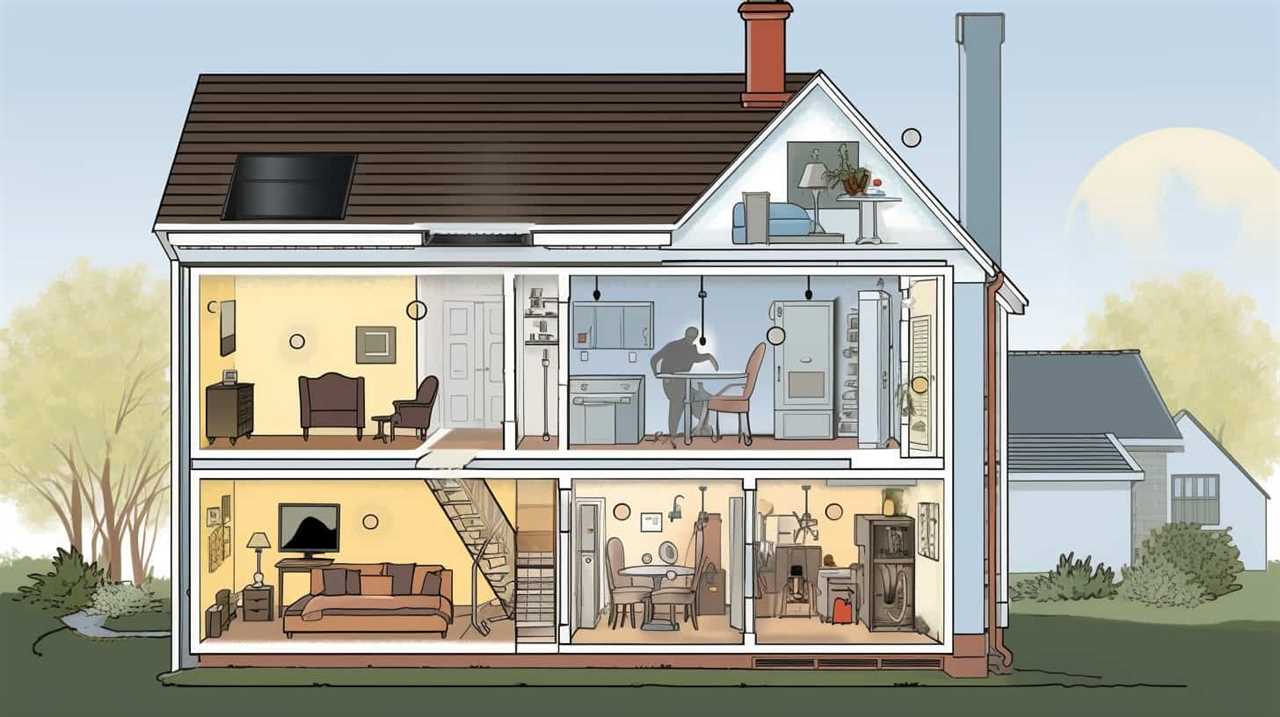
This rating system allows consumers to compare the energy efficiency of different heat pumps. However, it’s important to note that the SEER rating alone doesn’t provide a complete picture of a system’s efficiency. Other factors, such as the Coefficient of Performance (COP) and Energy Efficiency Ratio (EER), should also be considered.
The COP measures the heating efficiency of a heat pump, while the EER measures its cooling efficiency.
Importance of SEER
Why is it important to understand the SEER rating system for air conditioning heat pumps?
Understanding the SEER rating system is crucial for anyone looking to maximize energy efficiency and reduce utility costs. The SEER (Seasonal Energy Efficiency Ratio) rating measures the cooling output of an air conditioning unit divided by the energy it consumes over a typical cooling season.
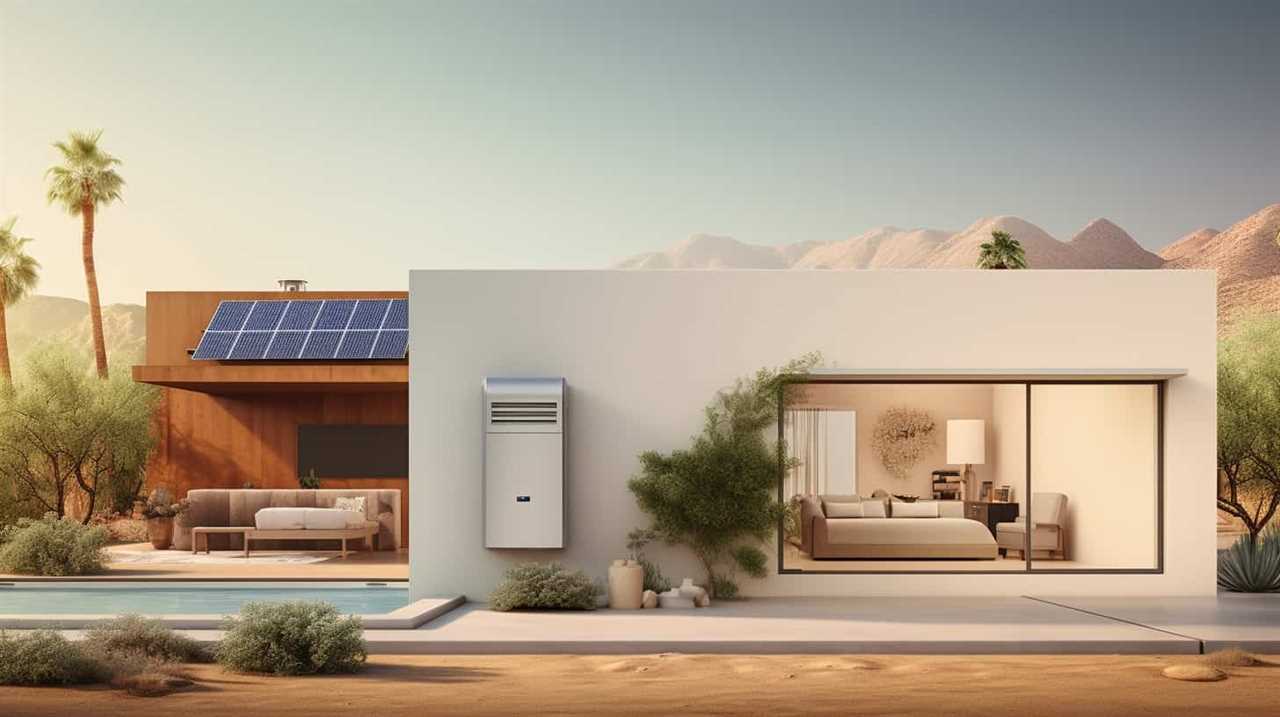
By choosing a heat pump with a higher SEER rating, you can enjoy several benefits. Firstly, energy-efficient models can significantly reduce your electricity bills. Additionally, these models are better for the environment as they consume less energy, thus reducing greenhouse gas emissions.
Lastly, proper maintenance of your heat pump is essential to ensure it operates at its highest efficiency and prolong its lifespan. Regular maintenance includes cleaning or replacing filters, checking refrigerant levels, and inspecting electrical connections.
Tips for Proper Sizing and Installation
When it comes to air conditioning heat pumps, accurate sizing and proper installation techniques are crucial for maximizing efficiency.
One of the most common mistakes in this process is incorrect sizing, which can lead to inadequate cooling or heating capacity and increased energy consumption.
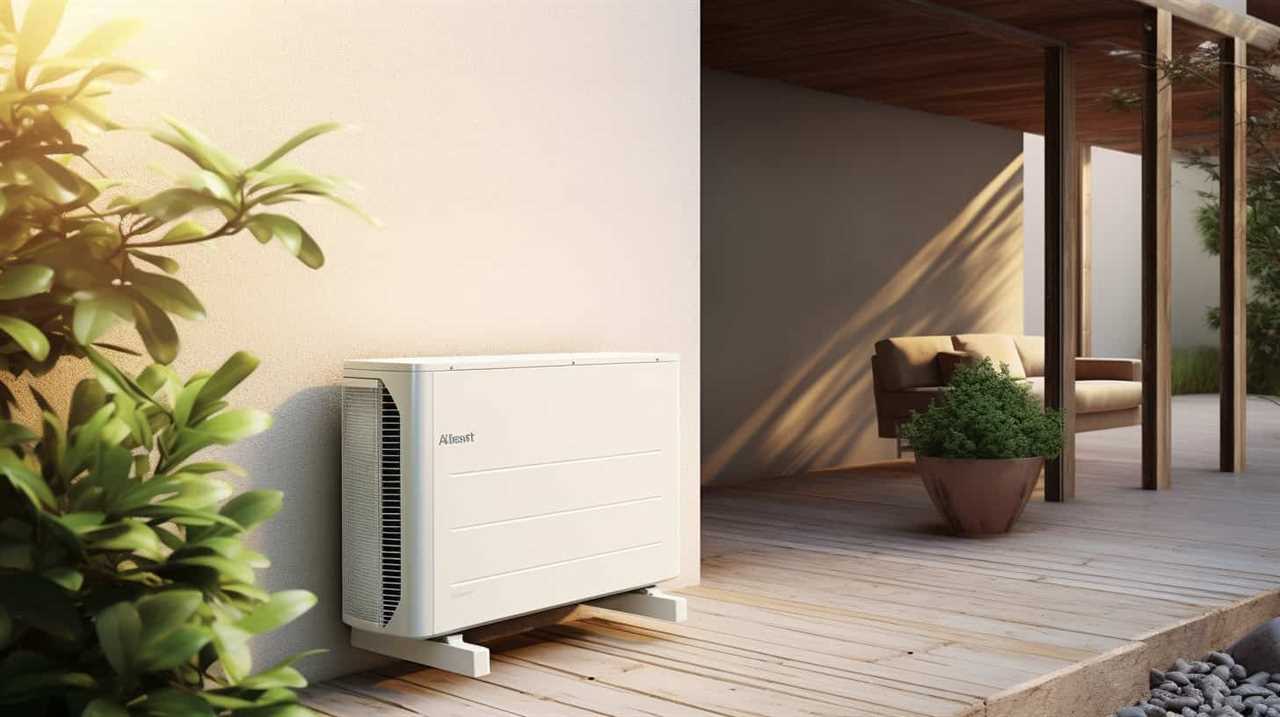
Additionally, improper installation can result in reduced performance and potential system failures.
Therefore, it’s essential to pay close attention to these factors to ensure optimal performance and energy efficiency.
Importance of Accurate Sizing
Accurate sizing is crucial for maximizing the efficiency of air conditioning heat pumps. Properly sizing the equipment ensures that it’s able to effectively cool or heat a space, while minimizing energy consumption. Here are some tips for accurate sizing and installation:
-
Conduct accurate calculations: It’s important to calculate the cooling and heating loads of the space accurately. This involves considering factors such as the size of the room, insulation levels, number of occupants, and climate conditions.
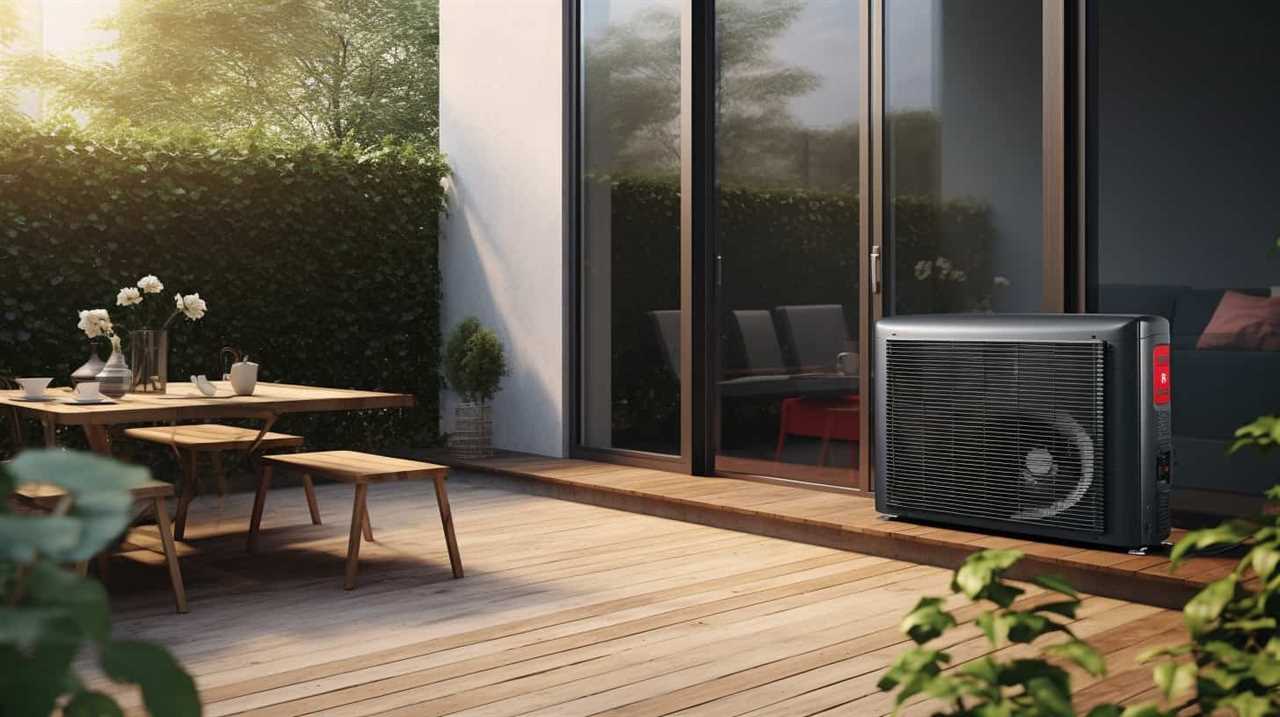
-
Select the right equipment: After calculating the load, it’s important to select the appropriate air conditioning heat pump that can efficiently meet the cooling and heating requirements of the space. Choosing the right size and capacity is essential for optimal performance.
-
Consider the climate: Climate conditions greatly impact the sizing of the system. A properly sized air conditioning heat pump takes into account the local climate, including temperature ranges and humidity levels, to ensure efficient operation.
-
Seek professional assistance: It’s advisable to consult with a professional HVAC technician who can accurately assess the cooling and heating needs of the space and provide expert guidance on equipment selection and installation.
-
Regular maintenance: After installation, regular maintenance is essential to ensure the system continues to operate efficiently. This includes cleaning filters, checking refrigerant levels, and inspecting the overall performance of the system.
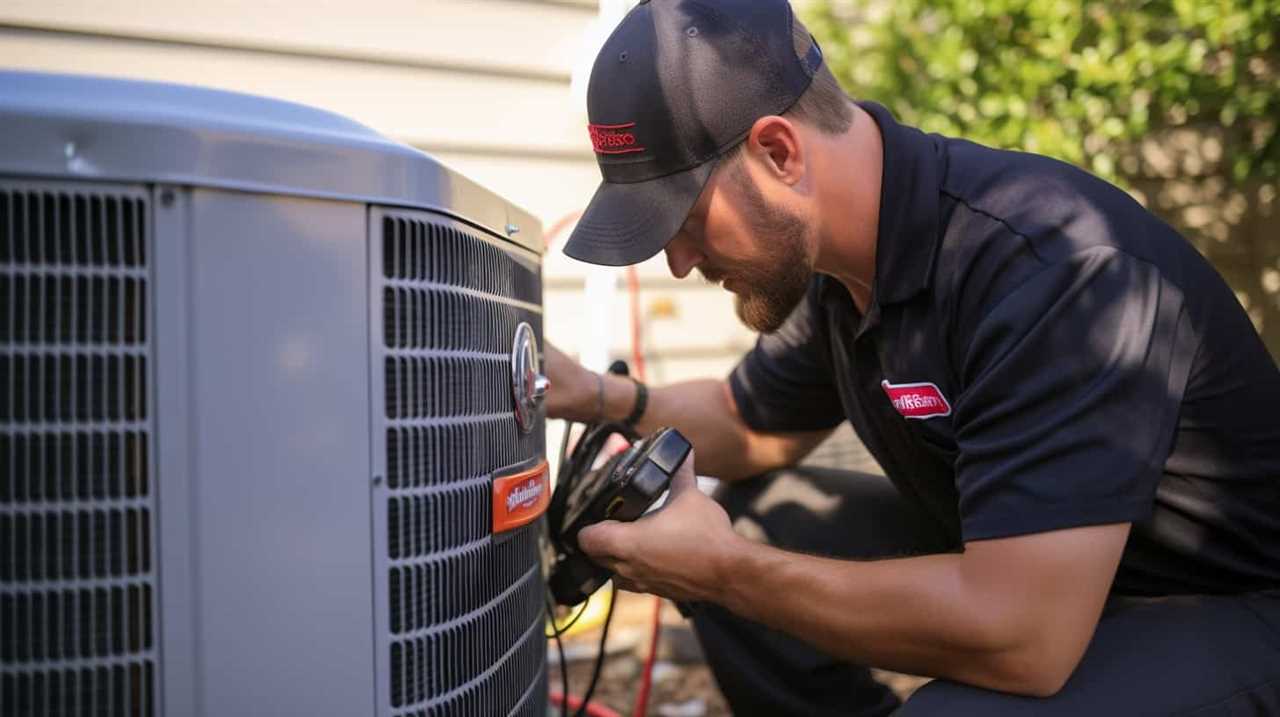
Proper Installation Techniques
Proper installation techniques are crucial to achieving optimal energy efficiency and performance from your air conditioning heat pump system. Here are some key tips to consider during installation:
-
Sizing: Properly sizing the heat pump is vital to its efficiency. It should be based on the cooling and heating load requirements of the space, taking into account factors such as insulation, windows, and occupancy.
-
Ductwork: Ensure that the ductwork is properly sized and sealed to minimize energy loss. Leaky ducts can significantly reduce the system’s efficiency and increase energy consumption.
-
Placement: The outdoor unit should be installed in a location with adequate airflow and free from obstructions. The indoor unit should be placed strategically for even distribution of conditioned air.
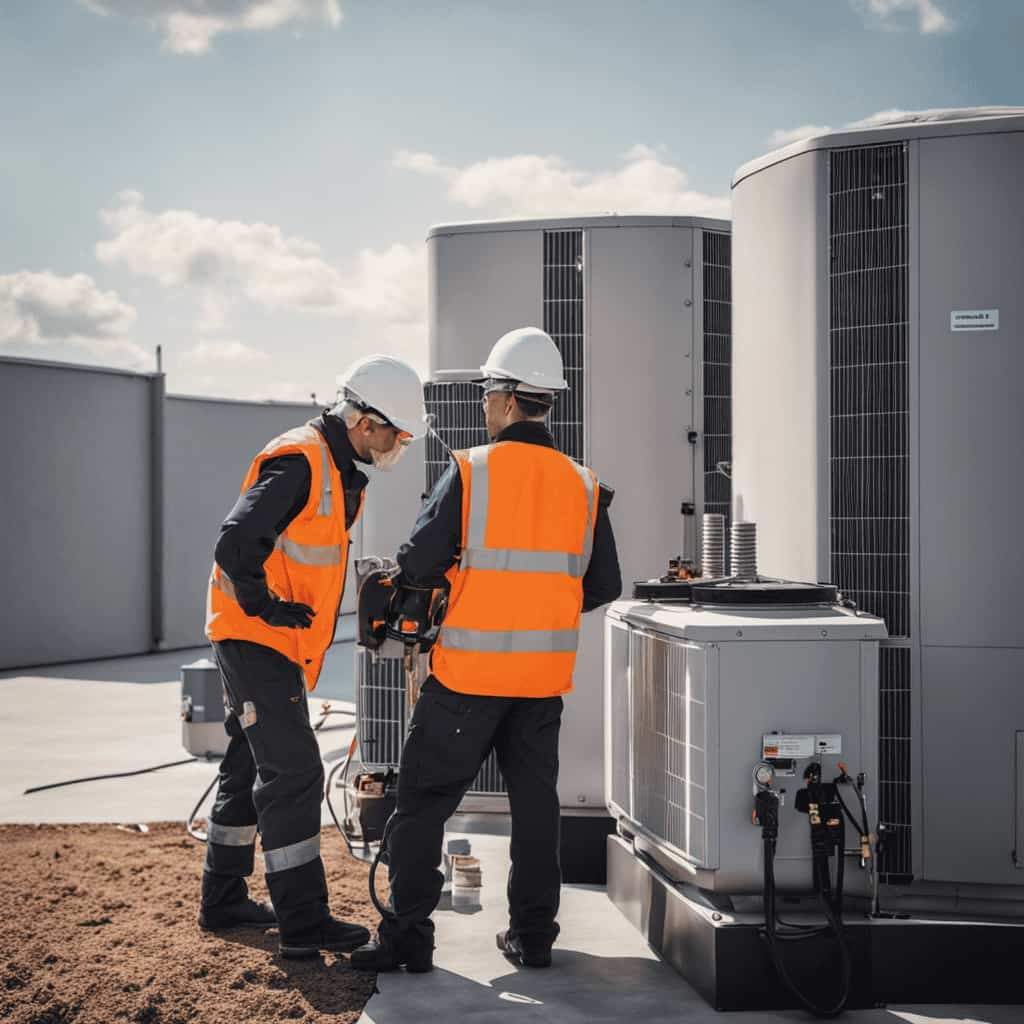
Common Sizing Mistakes
To ensure proper sizing and installation of air conditioning heat pumps, we should avoid common mistakes and follow these tips for optimal efficiency:
-
Using outdated sizing methods: Many people rely on outdated rules of thumb or guesswork when sizing air conditioning heat pumps. It’s important to use accurate calculations based on the specific requirements of the space.
-
Neglecting insulation and air sealing: Poor insulation and air leakage can greatly affect the performance of a heat pump. It’s crucial to properly insulate and seal the space to prevent energy loss.
-
Improper placement of outdoor unit: The outdoor unit should be placed in a well-ventilated area away from obstructions. This ensures proper airflow and prevents overheating.
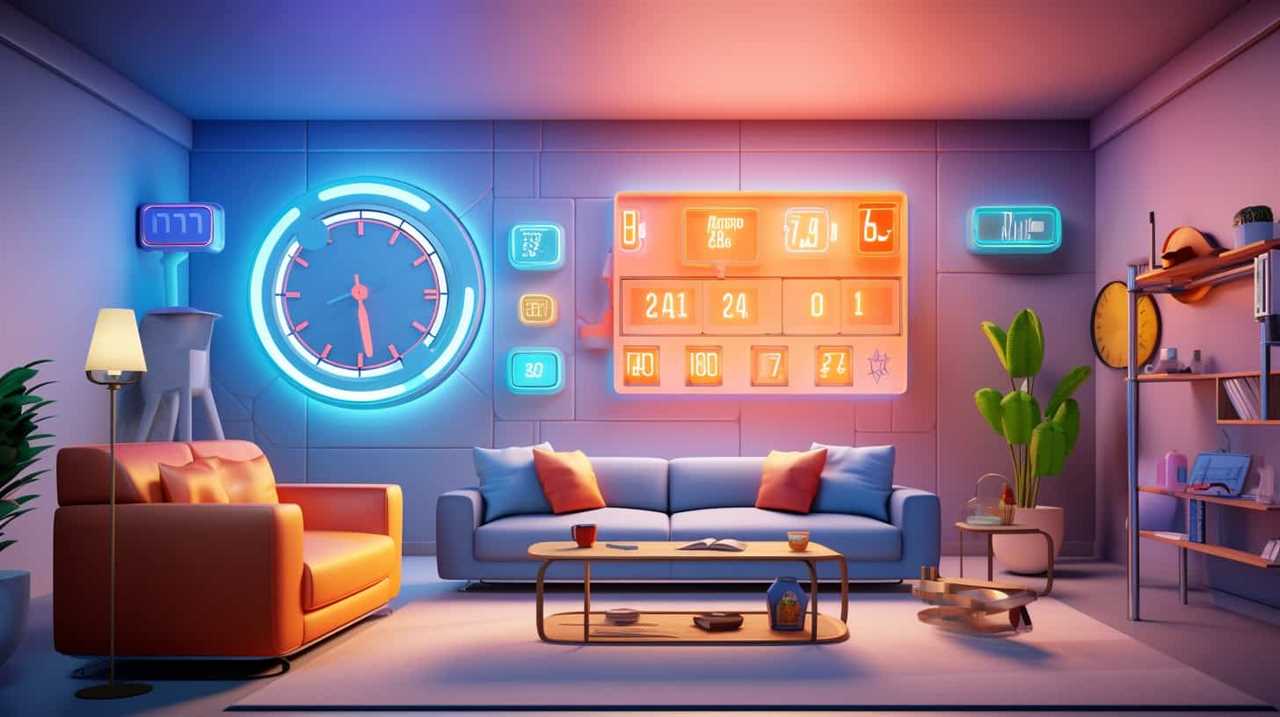
-
Neglecting proper refrigerant charge: Incorrect refrigerant charge can lead to decreased efficiency and performance. It’s important to follow manufacturer guidelines and ensure the correct amount of refrigerant is used.
-
Failure to commission the system: After installation, the system should be properly commissioned to ensure all components are working correctly. This includes checking refrigerant levels, airflow, and system controls.
By avoiding these common sizing and installation mistakes, we can maximize the efficiency of air conditioning heat pumps.
Now, let’s explore how to optimize energy savings with heat pump controls.
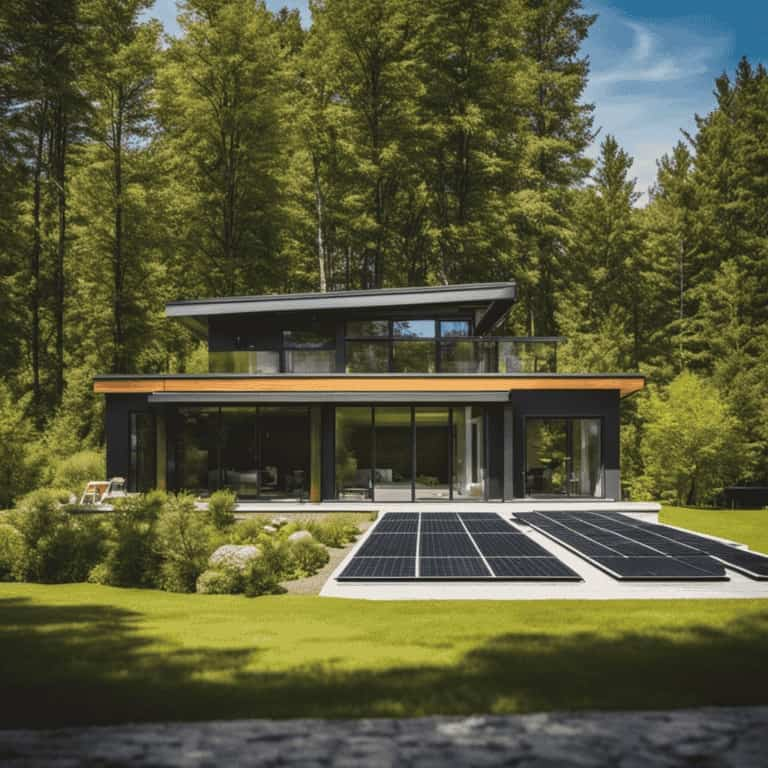
How to Optimize Energy Savings With Heat Pump Controls
We can maximize energy savings with heat pump controls by adjusting the temperature settings and utilizing programmable schedules. Heat pump controls play a crucial role in optimizing energy efficiency and reducing utility costs. By implementing energy-saving techniques, we can ensure that our heat pumps operate at their highest efficiency levels while providing optimum comfort.
One effective way to achieve energy savings is by adjusting the temperature settings. By setting the thermostat to a slightly higher temperature in the summer and a slightly lower temperature in the winter, we can reduce the workload on the heat pump and conserve energy. Additionally, utilizing programmable schedules allows us to automatically adjust the temperature based on our daily routine and occupancy patterns, further optimizing energy usage.
To assist you in understanding the impact of heat pump controls on energy savings, here is a table illustrating some common energy-saving techniques:
| Energy Saving Technique | Description | Benefits |
|---|---|---|
| Temperature Adjustment | Setting the thermostat to a slightly higher temperature in the summer and lower in the winter | Reduces workload on the heat pump |
| Programmable Schedules | Automating temperature adjustments based on daily routine and occupancy patterns | Optimizes energy usage based on specific needs |
| Smart Thermostats | Utilizing advanced technology to learn and adjust temperature settings automatically | Maximizes comfort and energy efficiency |
Exploring Different Heat Pump Technologies
Our goal is to explore the various heat pump technologies available and their potential benefits for maximizing efficiency in air conditioning systems.
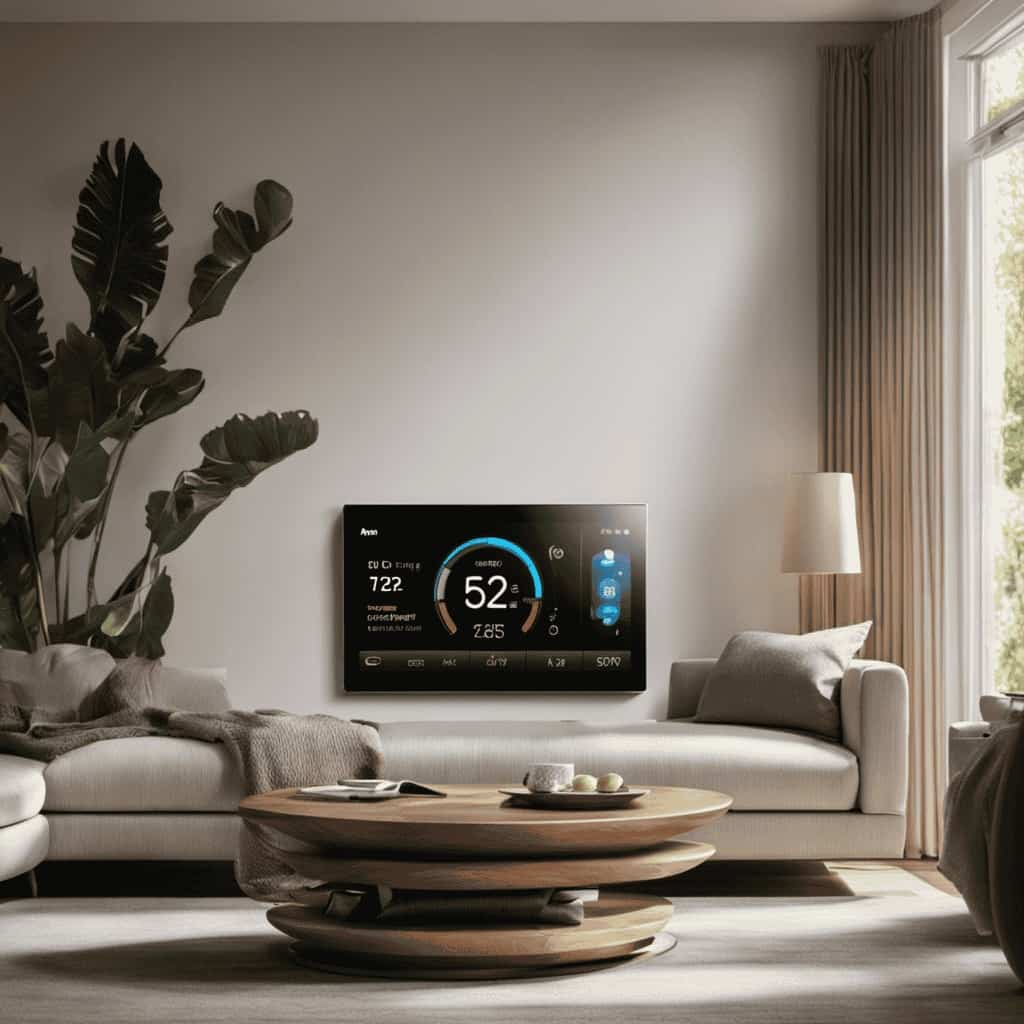
Here are some different heat pump designs and advanced heat pump technologies to consider:
-
Geothermal Heat Pumps: Utilize the stable temperature of the earth to provide efficient heating and cooling.
-
Air-Source Heat Pumps: Extract heat from the outside air to heat the interior space during colder months and provide cooling during warmer months.
-
Dual-Fuel Heat Pumps: Combine an electric heat pump with a gas furnace to optimize energy usage based on outdoor temperatures.
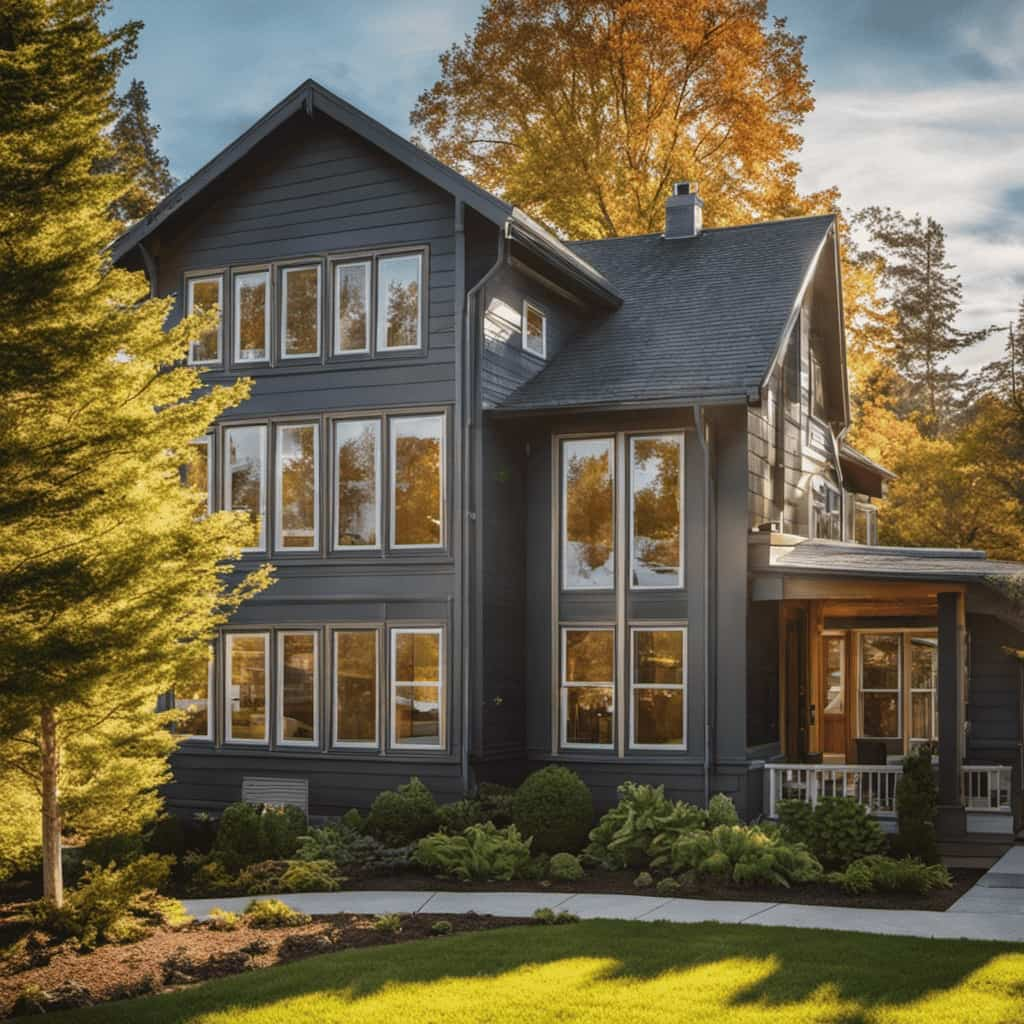
-
Ductless Mini-Split Heat Pumps: Provide individualized temperature control for different zones without the need for ductwork.
-
Variable Refrigerant Flow (VRF) Heat Pumps: Use advanced technology to vary the amount of refrigerant flowing to different indoor units, optimizing comfort and energy efficiency.
Understanding the benefits and capabilities of these different heat pump technologies can help you make an informed decision when it comes to maximizing efficiency in your air conditioning system.
Maximizing Efficiency Through Regular Maintenance
Regular maintenance is essential for maximizing efficiency in air conditioning heat pumps. By performing regular maintenance, you can ensure that your system operates at its peak performance, saving energy and reducing operating costs. Here are some cost-effective maintenance tips to keep your air conditioning heat pump running smoothly:
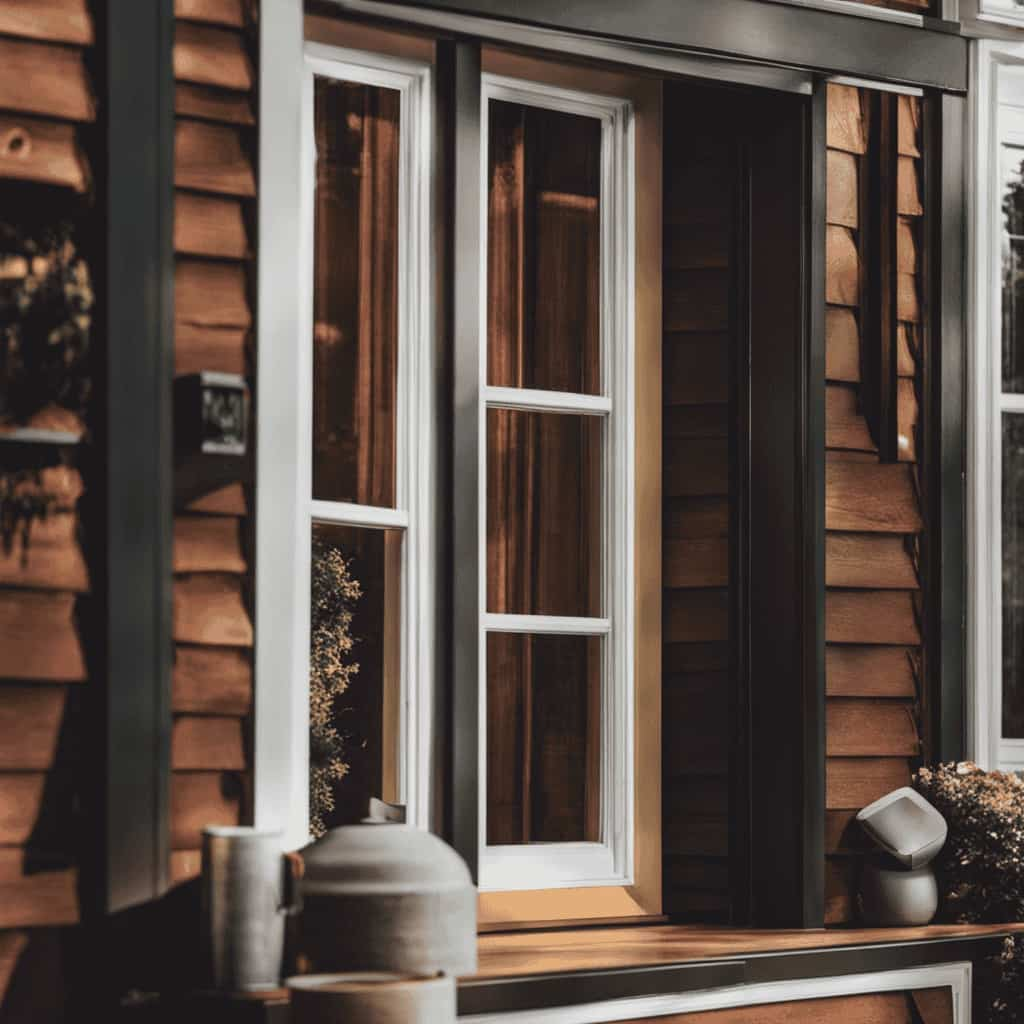
| Maintenance Task | Frequency | Benefits |
|---|---|---|
| Clean or replace air filters | Every 1-3 months | Improves air quality and airflow, reduces strain on the system |
| Inspect and clean coils | Annually | Enhances heat transfer, increases efficiency |
| Check refrigerant levels | Annually | Prevents system inefficiency and damage |
| Lubricate moving parts | Annually | Reduces friction, extends the lifespan of the system |
Enhancing Efficiency With Proper Insulation and Air Sealing
To enhance efficiency, it’s crucial to properly insulate and seal the air conditioning heat pump system. By implementing effective insulation techniques and air sealing methods, you can maximize the performance of your system and reduce energy waste.
Here are some key strategies to consider:
- Insulate ductwork: Adding insulation to your ducts helps prevent heat loss or gain during air distribution, improving overall system efficiency.
- Seal air leaks: Identifying and sealing air leaks in your home prevents unwanted air infiltration and helps maintain a consistent temperature.
- Insulate walls and ceilings: Proper insulation in these areas reduces heat transfer, keeping your home cooler in the summer and warmer in the winter.
- Use weatherstripping: Applying weatherstripping around windows and doors helps seal gaps and prevent air leakage.
- Insulate attics and crawl spaces: Insulating these areas prevents heat loss and infiltration, improving energy efficiency.
The Role of Ductwork in Heat Pump Efficiency
Insulating and sealing ductwork plays a crucial role in maximizing the efficiency of our heat pump system. Properly maintained ductwork ensures that conditioned air is delivered efficiently throughout the home, reducing energy waste and improving overall system performance.
Regular ductwork maintenance, such as cleaning and sealing any leaks or gaps, is essential for optimal heat pump operation. Neglecting ductwork maintenance can result in air leakage, which leads to energy loss and decreased efficiency. Additionally, poorly insulated or uninsulated ducts can result in heat gain or loss, further impacting the efficiency of the heat pump system.
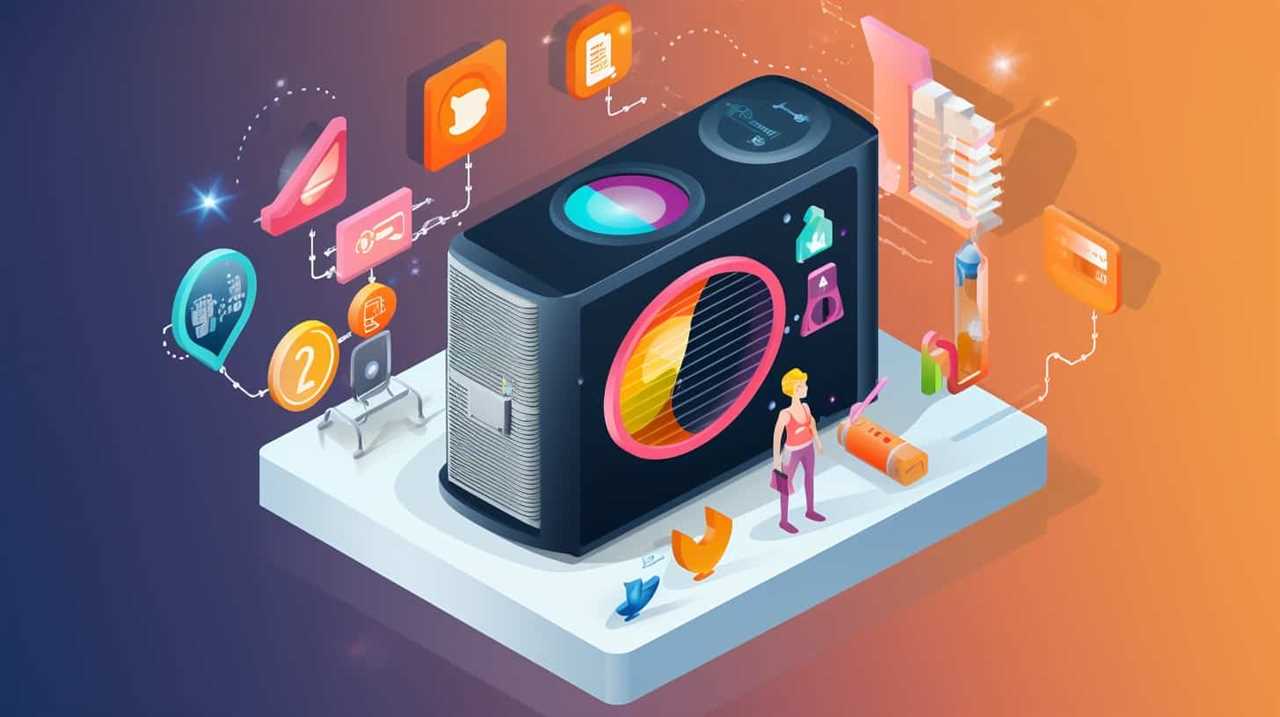
For those looking for alternatives to traditional ducted heat pumps, ductless heat pump systems offer a viable solution. By eliminating the need for ductwork, ductless heat pumps can improve efficiency and provide targeted heating and cooling to specific areas of the home.
Consideration of ductwork maintenance and exploration of ductless heat pump alternatives are key steps in maximizing the efficiency of our heat pump systems.
Innovative Strategies for Improving Heat Pump Performance
One effective strategy for improving heat pump performance is by using smart thermostats and scheduling features to optimize temperature settings and reduce energy consumption. These advanced technologies allow homeowners to have greater control over their heating and cooling systems, resulting in improved efficiency and comfort.
Here are five innovative strategies for improving heat pump performance:
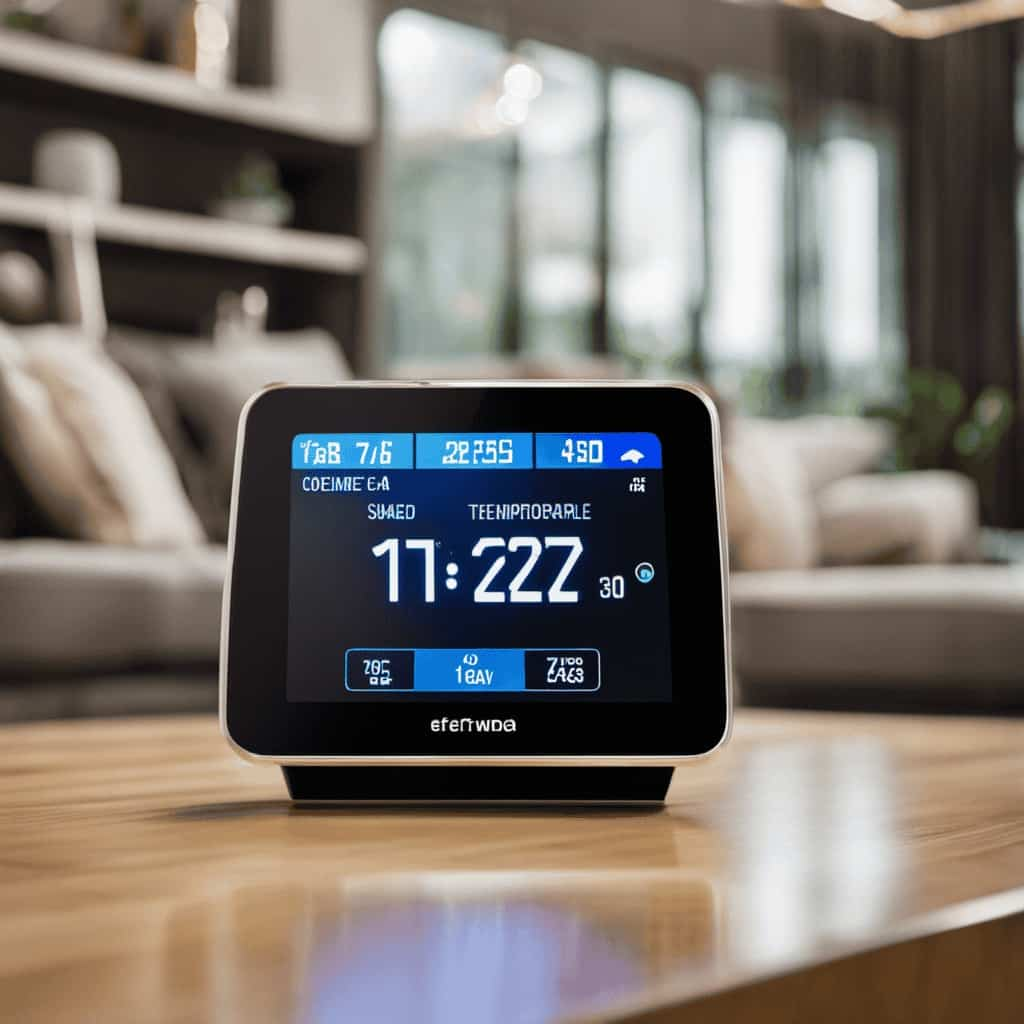
-
Utilizing geofencing technology to automatically adjust temperature settings based on the occupants’ location, ensuring energy isn’t wasted when no one is home.
-
Implementing machine learning algorithms that analyze historical data and make real-time adjustments to optimize energy usage and reduce operating costs.
-
Integrating smart home automation systems that allow for seamless integration with other smart devices, creating a more efficient and interconnected home environment.
-
Using remote access features to monitor and control heat pump settings from anywhere, providing convenience and flexibility for homeowners.
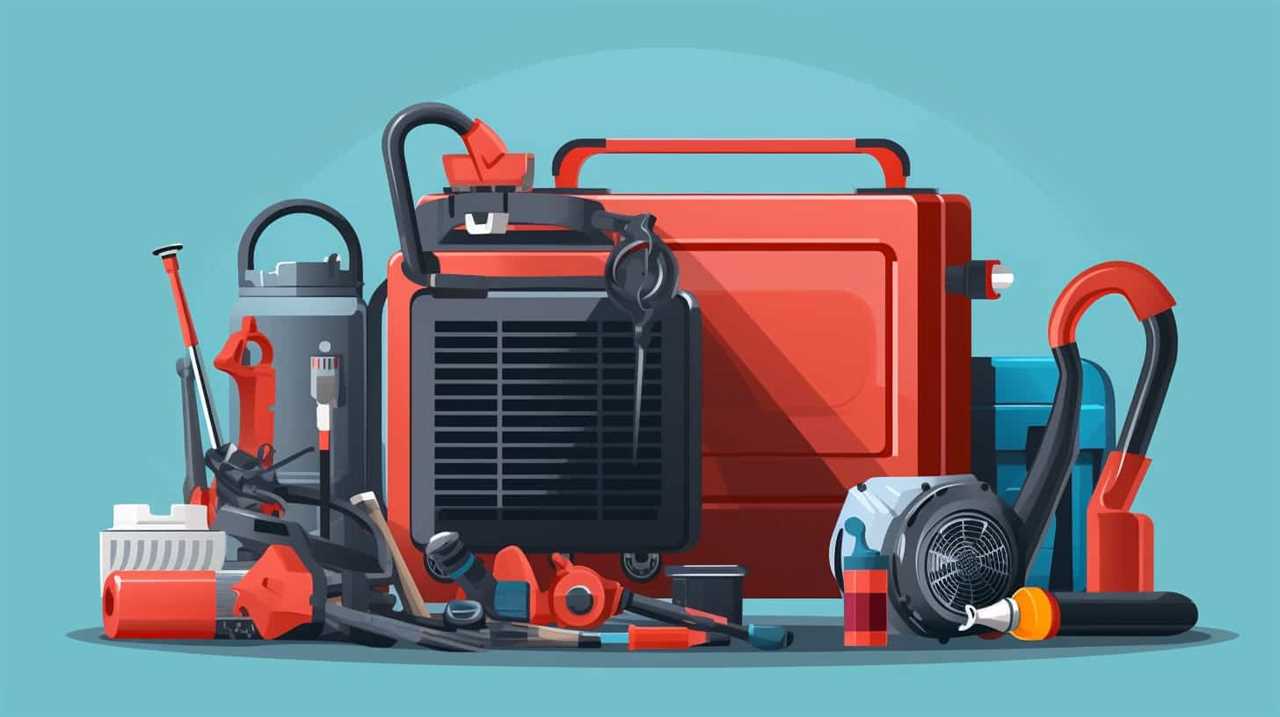
-
Taking advantage of energy usage reports and analytics provided by smart thermostats to identify patterns and make informed decisions on further optimizing heat pump performance.
Frequently Asked Questions
What Are the Common Problems or Issues That Can Affect the Efficiency of Air Conditioning Heat Pumps?
Outdoor noise levels and lack of regular servicing can negatively impact the efficiency of air conditioning heat pumps. We recommend addressing these common problems to ensure optimal performance and energy savings.
Are There Any Specific Maintenance Tasks That Homeowners Can Perform Themselves to Improve the Efficiency of Their Heat Pumps?
To improve the efficiency of your heat pumps, homeowners can perform specific DIY maintenance tasks. These tasks include cleaning or replacing air filters regularly, checking and adjusting thermostat settings, and ensuring proper airflow by clearing debris from the outdoor unit.
How Can the Location and Placement of the Heat Pump Unit Impact Its Efficiency?
The location and placement of the heat pump unit significantly impact its efficiency. Factors such as landscaping can affect airflow, while proper insulation ensures optimal performance. Maximizing efficiency requires careful consideration of these aspects.
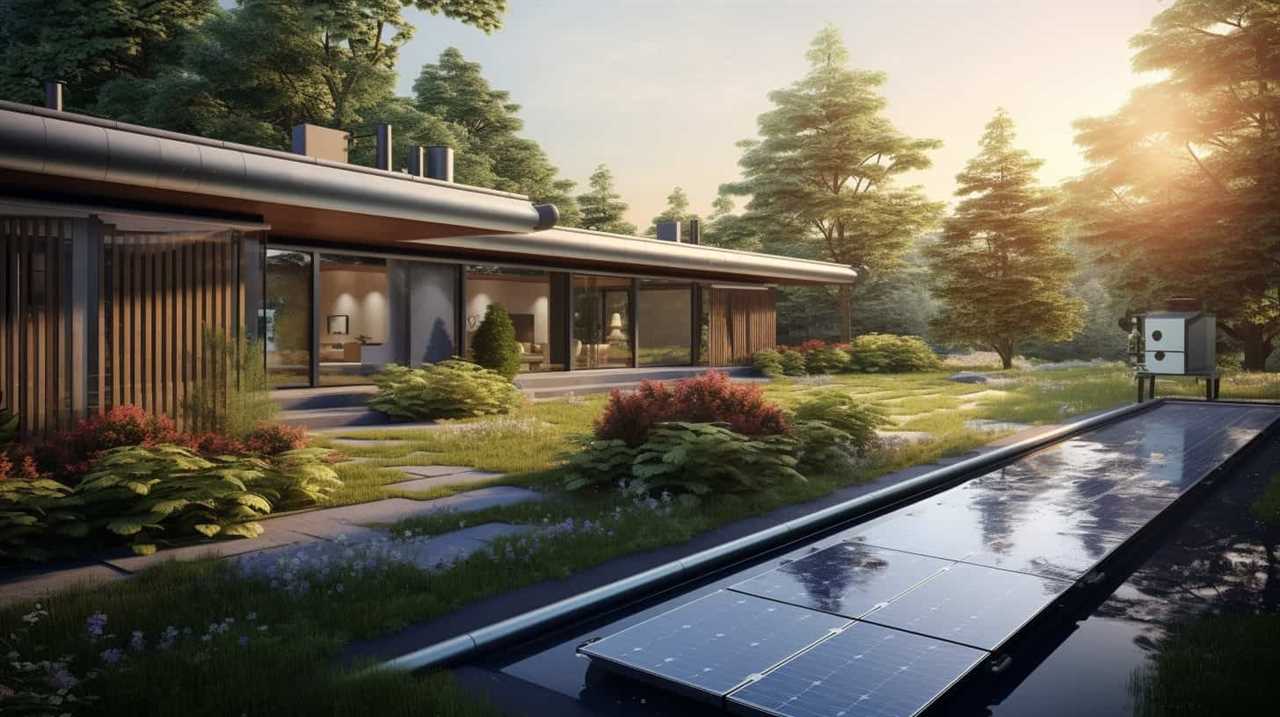
What Are Some Lesser-Known Factors That Can Affect the Efficiency of a Heat Pump, Such as Outdoor Temperature Fluctuations or Humidity Levels?
Outdoor temperature fluctuations and humidity levels are lesser-known factors that can significantly affect the efficiency of a heat pump. Understanding how these variables impact the system’s performance is crucial for maximizing its efficiency and ensuring optimal comfort.
Are There Any Incentives or Rebates Available for Homeowners Who Upgrade to More Efficient Heat Pump Systems?
Incentive programs are available for homeowners who upgrade to more efficient heat pump systems. These programs aim to promote energy savings and offer cost-effective upgrades that benefit both the homeowner and the environment.
Conclusion
In conclusion, maximizing efficiency in air conditioning heat pumps is crucial for energy savings.
For example, a case study conducted in a residential setting showed that by properly sizing and installing the heat pump, the homeowner was able to reduce their energy consumption by 30%.
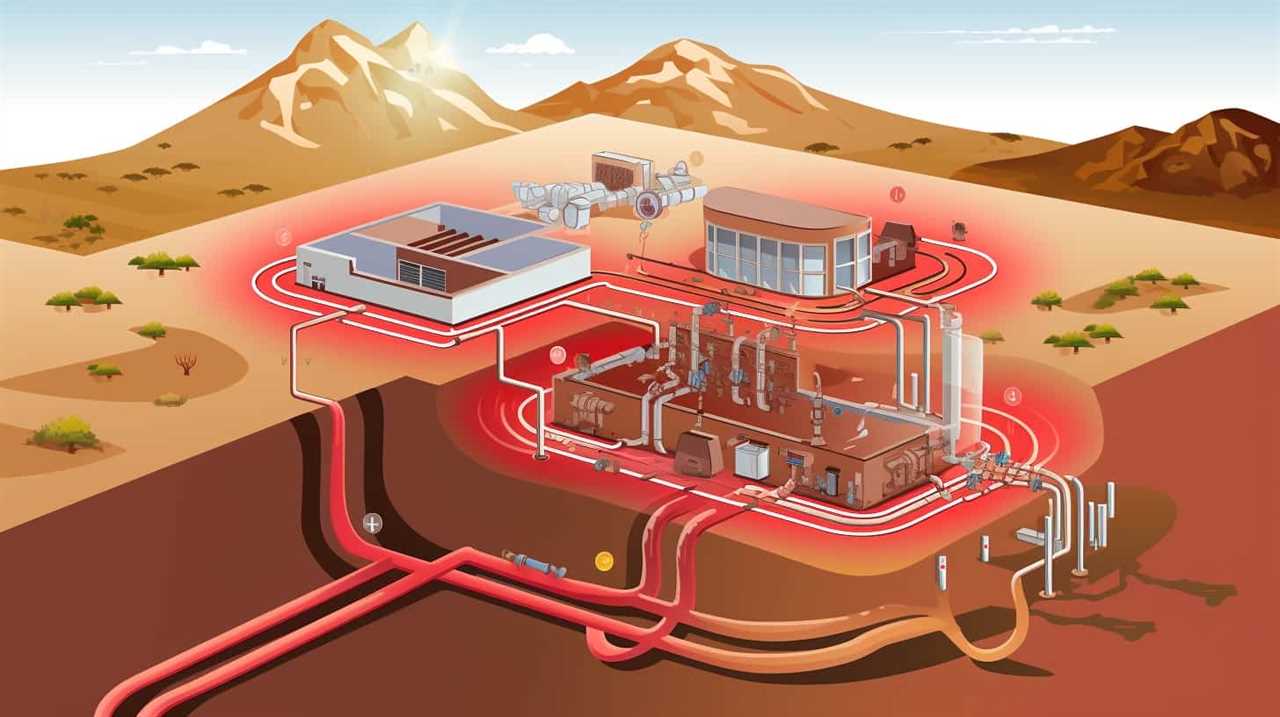
This highlights the importance of understanding the SEER rating system, utilizing heat pump controls, and regularly maintaining the system.
By implementing these strategies, individuals can enhance the performance of their heat pumps and achieve significant energy savings.
